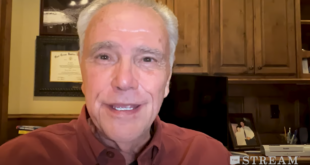Here are the next three principles of faith and freedom. Remember, we are establishing foundational stones upon which to stand. All who love freedom can agree on these principles. Those who understand the importance of faith, family, the free market, and a limited government can hold to these truths as we work together to re-establish a government that protects our freedom instead of encouraging dependence upon it as provider.
Marriage and the family are the fundamental institutions.
Conjugal marriage and the family are the two most basic human institutions. They exist in every time and place, and they pre-exist the state. The state does not determine what marriage and family are, but they must recognize them. That’s why political attempts to redefine marriage and family are not tolerant but totalitarian. They are wars against the creation itself, and we should oppose them with all our might.
At the same time we must support policies that encourage healthy families. This requires discernment, since every half-baked bill proposed in Congress claims to be pro-family. But many policies create incentives that harm the family. Divorce rates, out-of-wedlock births, and fatherless homes have risen in every class in the United States in the last fifty years, but the decay has been catastrophic in poor communities where the welfare state has mostly replaced the traditional roles of the father and the church. This tragic unintended consequence suggests a rule of thumb: If a policy surrenders territory to the state that ought to be part of civil society, that policy will harm rather than help families in the long run.
We can know God and moral truth.
Contrary to today’s fashion, the American Founders understood that everyone has a general knowledge of the natural moral law and the Lawgiver. From the starry heavens above to the moral law within, the world points to its Creator. That’s why even atheists know that murder is wrong, experience feelings of gratitude and guilt, bristle at injustice, and get mad at the God they don’t believe in when they see injustice around them. We can discern enough of the law “from the things that have been made” so that we can be held accountable for what we do (Romans 1).
The existence of a Creator and a natural law are public truths. This is why the Founders appealed to the “Laws of Nature and Nature’s God,” though they still took pains not to establish a national religion. Even the Supreme Court, which hasn’t always respected this part of our history, reiterated these points as recently as 1984, stating, “We are a religious people whose institutions presuppose a Supreme Being.”
Secularism and progressivism, however, deny that we can know God and morality. They seek to quarantine both to a ghetto of private religious faith. This has created a secular and relativistic public square, which is exactly the opposite of what the Founders intended. We must reverse this trend and defend the truth that man has real moral knowledge, which is the foundation of just government.
Judeo-Christian faith guards our freedom.
Though everyone has some knowledge of God and morality, that knowledge is darkened by sin. It tends to wither away without vibrant faith to reinforce it. We should stand with the Founders, who both opposed the establishment of a specific religion and supported robust expressions of religious faith in the public square. That’s not a contradiction. It is, quite simply, the free exercise of religion guaranteed by the First Amendment.
Contrary to secularist myth, faith in the public square need not imperil our freedom. In the past, some Christians have persecuted others, including fellow Christians. But they were violating the spirit and content of their faith in doing so. While not every religious belief is friendly to freedom, the basic tenets of the Judeo-Christian tradition reinforce political, economic, and religious freedom. We owe our freedoms, in large part, to this tradition. It’s where we get our belief that individuals have equal value. It’s also where we get the idea of sin, which inspired the Founders to establish a limited government and a separation of powers.
Faith encourages the virtues that help sustain the free society. It gives us hope in the future, which is under the providence of God, while preventing us from falling for utopian fantasies like the communist illusions that killed scores of millions of people in the twentieth century.
We must correct the false stereotype that faith feeds theocracy and defend the freedom of believers to apply their faith to the concerns of the day.
I pray you will read INDIVISIBLE. Jay Richards and I prayerfully and with great concern offer understanding of the challenges we face and how to best effectively address them. The book is filled with hope and promise. Consider what the author of Wealth & Poverty and the man President Reagan most often quoted, George Gilder, had to say about the book. “James Robison and Jay Richards chop up and stir some of the most indigestible issues of our time – sex, money, race, gender, education, you name it – and then bite down on the hot and highly seasoned casserole with relish and realism. You’ll be talking to the chapters as you go along, cheering them on, and thinking about your Uncle Harry or an errant kid in college who needs to get INDIVISIBLE as a gift. I personally want to see it in the hands of those misguided politicos and media conservatives who think that social issues and economic issues can be separated. They can’t, and these irenic and ecumenical authors – an evangelical and a Catholic – make that case persuasively, concussively clear. Presidential candidates, take note.” Order it online at lifetoday.org or Amazon.com.
 James Robison A Weekly Commentary
James Robison A Weekly Commentary
